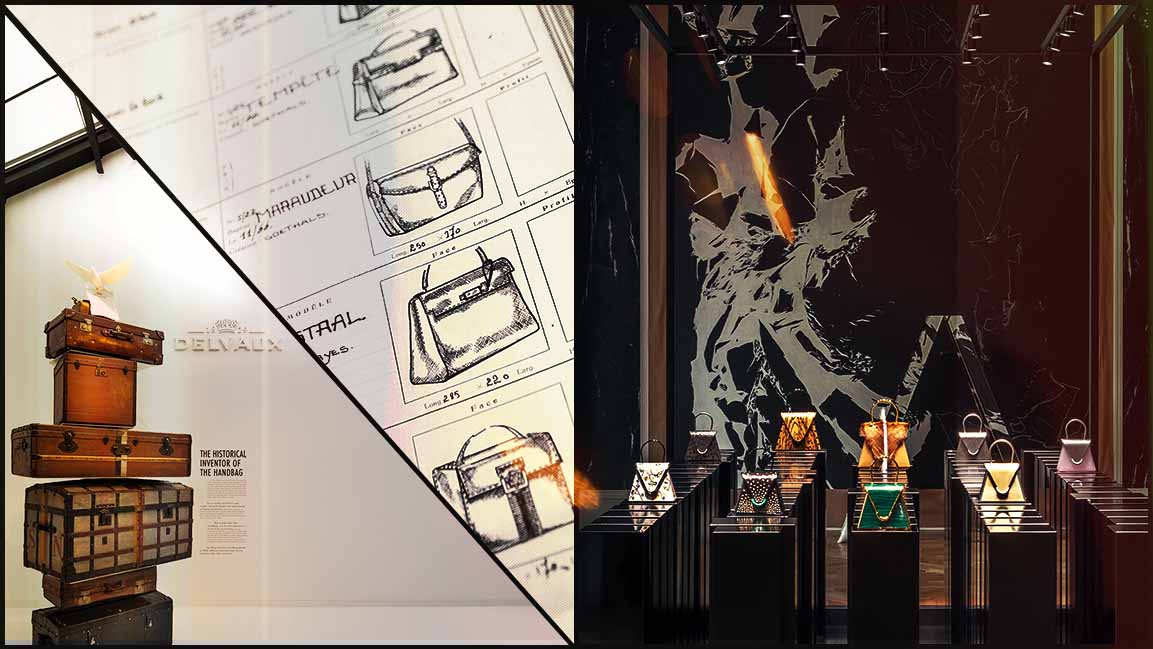- | 8:00 am
A Bugatti penthouse? That’ll cost you $200 million
Luxury car, hotel, and watch brands are taking over the skyline with buildings reflecting their likeness and logos.
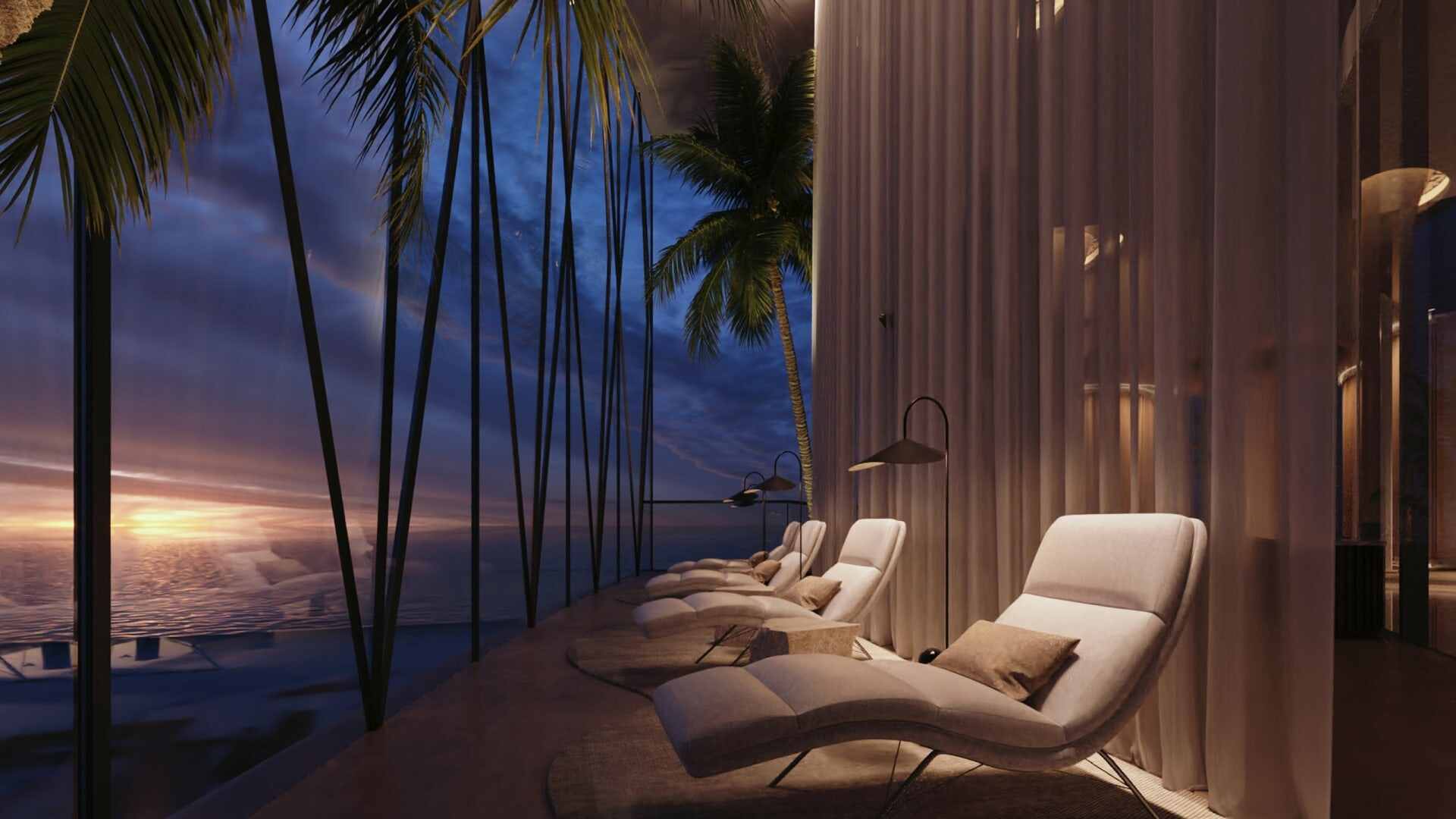
Porsche. Bentley. Dolce & Gabbana. Armani. Even for people who will never be able to afford their products, these luxury brands are household names. Now, they’re also becoming homes.
A growing number of luxury brands, from cars to fashion to fine dining, are linking their names to high-end residential projects around the world. Branded luxury residences are now on the rise in Dubai, South Florida, New York, and Phuket, Thailand, where single units can sell for hundreds of millions of dollars. With prominently placed logos and interiors that recall or reflect the aesthetics of a select brand, these buildings are architectural stand-ins for companies that have little, if any, connection to the built environment.
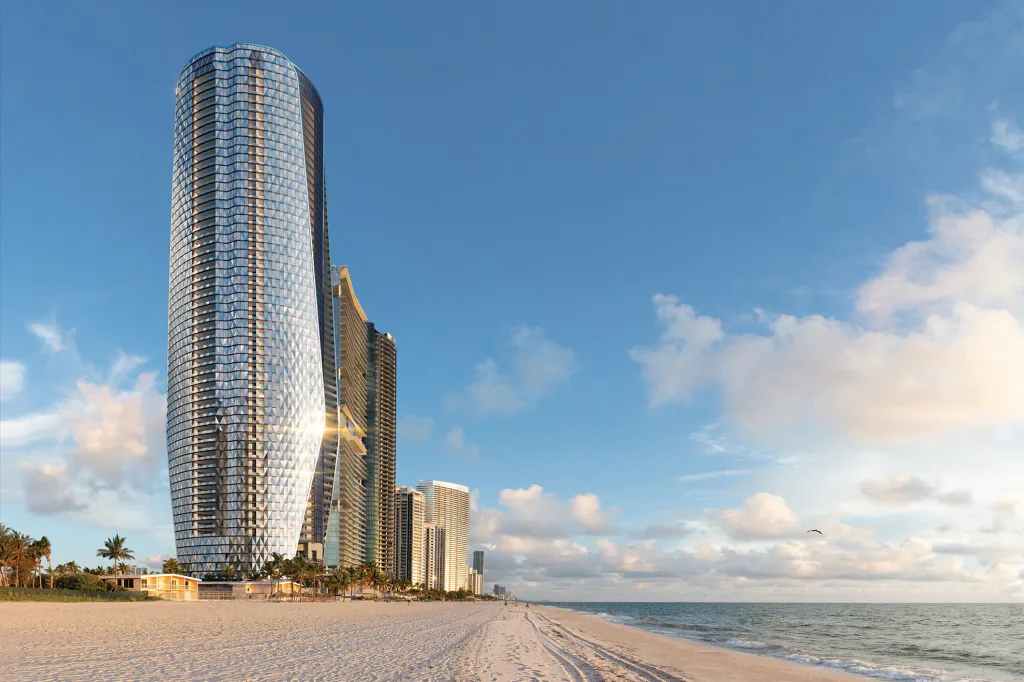
“QUITE REMARKABLE” GROWTH
Hotels such as the Four Seasons and Ritz Carlton have used this approach for decades, stretching their brands to create extended-stay residences and condos. Over the past 20 years, a wider range of brands have gotten into the game. According to a recent report from Savills, there are nearly 700 branded residences around the world, and another 600 in the pipeline for completion by 2030. Hotel brands make up the majority of these, but among the growing number of non-hotel brands venturing into residential development, luxury car companies are the most active.
The trend started around 2012, when the design firm Pininfarina, known for its work designing sports cars for such brands as Ferrari, announced it would design the interiors of a 42-story condo tower in Miami. That building opened in 2015, followed by another nearby that was designed in collaboration with Porsche. Since then, luxury carmakers have started building towers throughout Florida, and increasingly in the United Arab Emirates and South America.
“The automotive-branded residential space is growing between 25% and 30% annually,” says Rico Picenoni, head of Savills global residential development consultancy. “To go from a base of one to two projects to 30 and 40 projects over the space of 12 years is quite remarkable.”
Recently announced projects are connected with Mercedes-Benz, Bugatti, and Aston Martin—most of which are located in Dubai. The Mercedez-Benz project, for example, is a 65-story bullet-shaped tower in central Dubai that features hundreds of imprints of the brand’s three-point-star logo on its facade. Bugatti’s project is a 42-story curvaceous tower in Dubai that is ringed with balconies around its globular form. In New York, Aston Martin teamed up with the architect Sir David Adjaye to design five fully furnished homes on the 59th and 60th stories of a high-rise tower in Manhattan’s Financial District. (Included in the deal: an Adjaye-designed special edition Aston Martin DBX.)
“The brands will always be involved in the design, on the marketing side, and the programming of the development,” Picenoni says. “It’s not simply licensing the brand.”
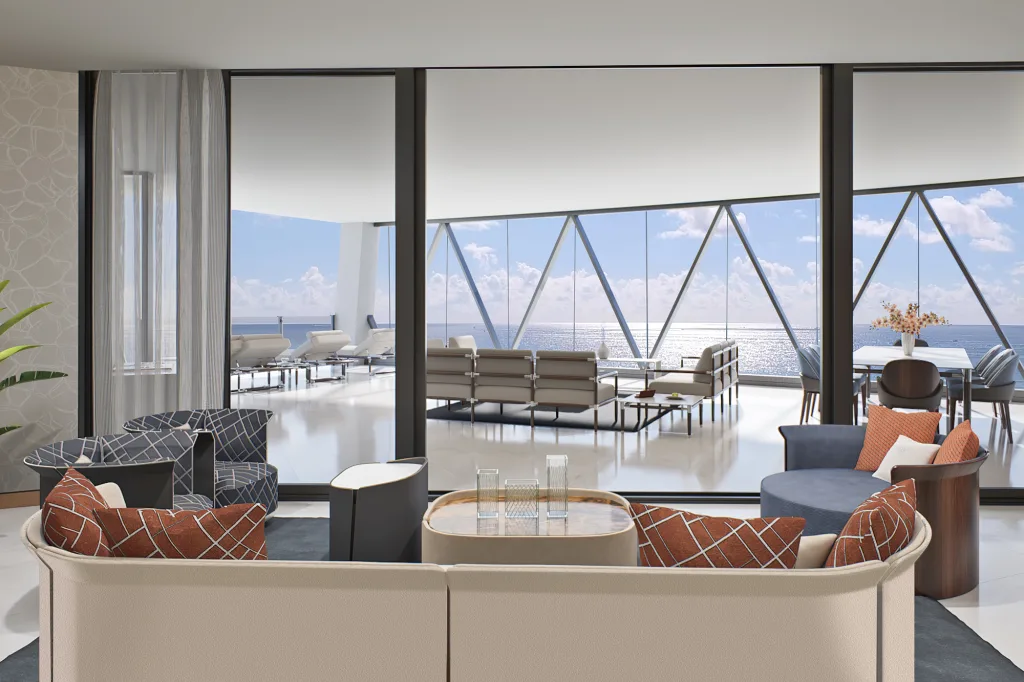
A CAR-BRANDED TOWER, WITH A CAR ELEVATOR
One of the earliest developers to venture into partnerships with car brands is Gil Dezer. He’s a second-generation real estate developer based north of Miami, and his family’s company, Dezer Development, has become a specialist in branded residences that go heavy on luxury and brand integration. The first car-related project he did was the 60-story Porsche Design Tower, which opened in Miami in 2017 and includes a special elevator that brings an owner’s car directly to their unit. Glass-walled garages allow car enthusiasts to display vehicles within their apartments.
“The elevator at Porsche started as, ‘Oh my god, this is so cool. You get to have your cars in your living room.’ That was our idea,” says Dezer, whose billionaire father and company founder, Michael Dezer, is a known car collector. The ability to drive into the building and ride an elevator directly to an apartment proved appealing to those beyond the car-buff market. “Celebrities liked the fact that they can come into the elevator, go up to their apartment, and go home without being seen or bothered,” Dezer says.
This opened Dezer to the prospect that a car-branded residence could have appeal beyond the car aficionados set. His latest project, located about 10 miles north of Miami Beach, is a partnership with Bentley Motors, and he says it builds on what his company did with the Porsche project. Working closely with Bentley’s design team, Dezer says the 63-story tower was designed to reflect the luxury finishes and details found in the Bentley interiors. The brand’s diamond motif—which shows up in Bentley cars from the dashboard to the texture of the door handles—is a key residential design element, with diamond-shaped windows covering the facade of the tower and amenity spaces like the whiskey bar, spa, and kids playroom.
Dezer says they’ve even infused the Bentley’s “new car smell” into an oil that will be used as ambient fragrance in the building’s common areas. Units will be accessible by car elevator, and each will have three or four parking spaces (all visible from inside the apartment). Prices range from $5.5 million to $8.5 million.
For branded residences, prices this high are not uncommon. Whether it’s a car company or the more common hotel chain, properties associated with a brand, according to the Savills report, are able to charge a 30% premium on average compared to the prices of non-branded offerings. That premium climbs to 50% in emerging markets. Beyond the hot spots of South Florida and Dubai, branded residences are seeing significant growth in Mexico’s Riviera Maya, Cairo, Da Nang, Vietnam, and Phuket. In global city markets, such as Miami, premiums are around 25%, which only incentivizes developers to consider hitching their projects to known brands.
More and more projects are going this route. A recently announced 90-story tower in Miami will include 259 Dolce & Gabbana-designed residences. When built, it will be the same height as the Waldorf Astoria Miami, another branded residential and hotel tower now under construction nearby.
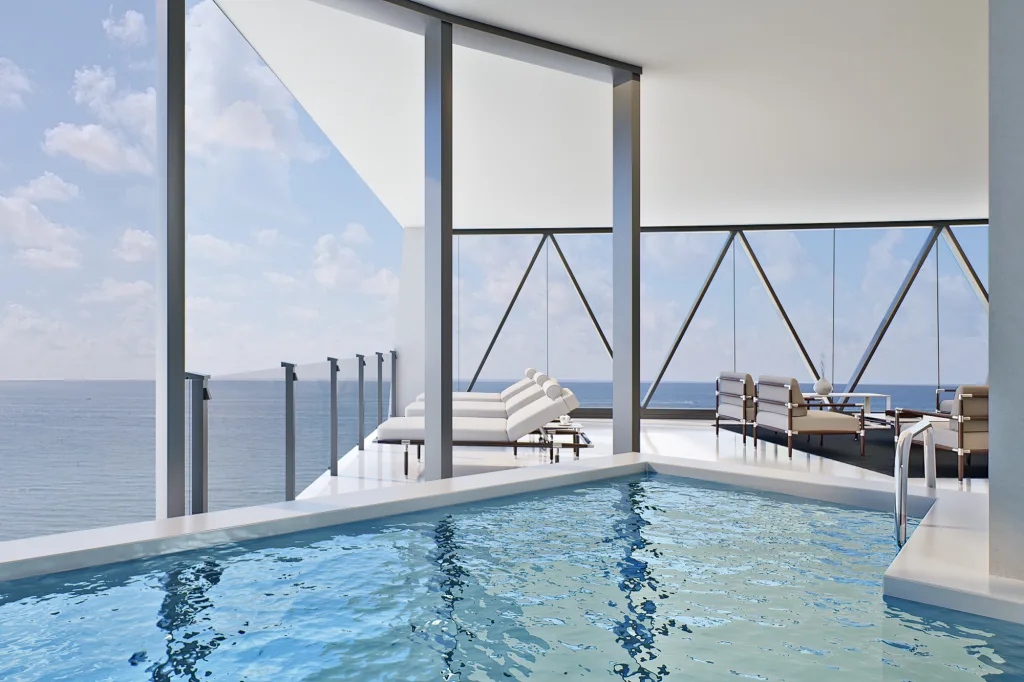
“FREE ADVERTISING,” BUT WITH SOME RISKS
Even though a car and an apartment may seem like completely different categories, there are enough overlaps in the form, finish, and general ostentatiousness of luxury products that it can make sense for some brands to adapt their aesthetic. Savills’ Picenoni says that the level of design that goes into a luxury car “can transcend industries”—and provide new revenue streams.
People in the market for a $350,000 Bentley are likely accustomed to looking for a similar standard of luxury in other products. Savills’ report on branded residences finds that most buyers tend to be high-net worth individuals. These are often people who “have some sort of appreciation or passion for the brand into which they are buying, and so being able to establish a more meaningful relationship with the residence owner is important,” says Picenoni. “Those residence owners effectively become ambassadors of the brand.”
Picenoni expects more companies and brands to experiment in branded residences going forward. The Savills report predicts that by 2030 non-hotel brands will account for 20% of the total supply of branded residences. “We do expect more automotive brands to get into this space,” he says.
But it’s not just a matter of slapping a brand name on a high rise. “Diversifying away from your core business requires time and resources,” Picenoni says. “There are risks associated with it.”
That also goes for the developers and architects who partner with brands on these kinds of projects. Dezer knows firsthand the risks involved with linking too closely to a particular brand.
In the early 2000s, Dezer made a deal to develop residential towers in South Florida branded in connection with Donald Trump. His company built several Trump-branded towers at a time when Trump was starring in NBC’s The Apprentice, “which was basically free advertising for me,” Dezer says. “You put a brand on it and you get a lot of attention.”
At the time, Trump’s TV celebrity was Dezer’s marketing tool. Nearly two decades later, a presidency, two impeachments, and three contentious presidential campaigns, to say nothing of the pending court cases, the association has changed. “Half the country still likes him,” Dezer says. “But there’s no doubt it is one of those brands that’s really playing up to his fan base.”
Automotive brands don’t carry that kind of potential baggage. “They call themselves faceless car companies,” Dezer says. “And that’s why they have that longevity.”
There’s probably a limit to how far the branded residence market can go. Picenoni says he wouldn’t be surprised to see future branded projects tied to Tesla or Maserati car companies. Toyota or Mitsubishi? Not so much.
But the market is going in unexpected directions. In Dubai, there are currently two branded high-rises connected to watchmakers. One is a crown-topped rectangular tower associated with the brand Jacob & Co.; the other, attached to the Swiss watchmaker Franck Muller, features a gigantic multistory watch face at its peak.
It can be hard to tell what is viable, or real, even for an expert. Picenoni says he recently saw an article about Emirates Airlines getting into the branded residential market. “And I thought, sure, why not? Emirates, great airline. Dubai is the most active market [for branded residences]. And Emirates cabins have a certain design. So why wouldn’t Emirates get into the space?” he says. Then he looked at the calendar. “Turns out, it was an April Fool’s joke.”
















